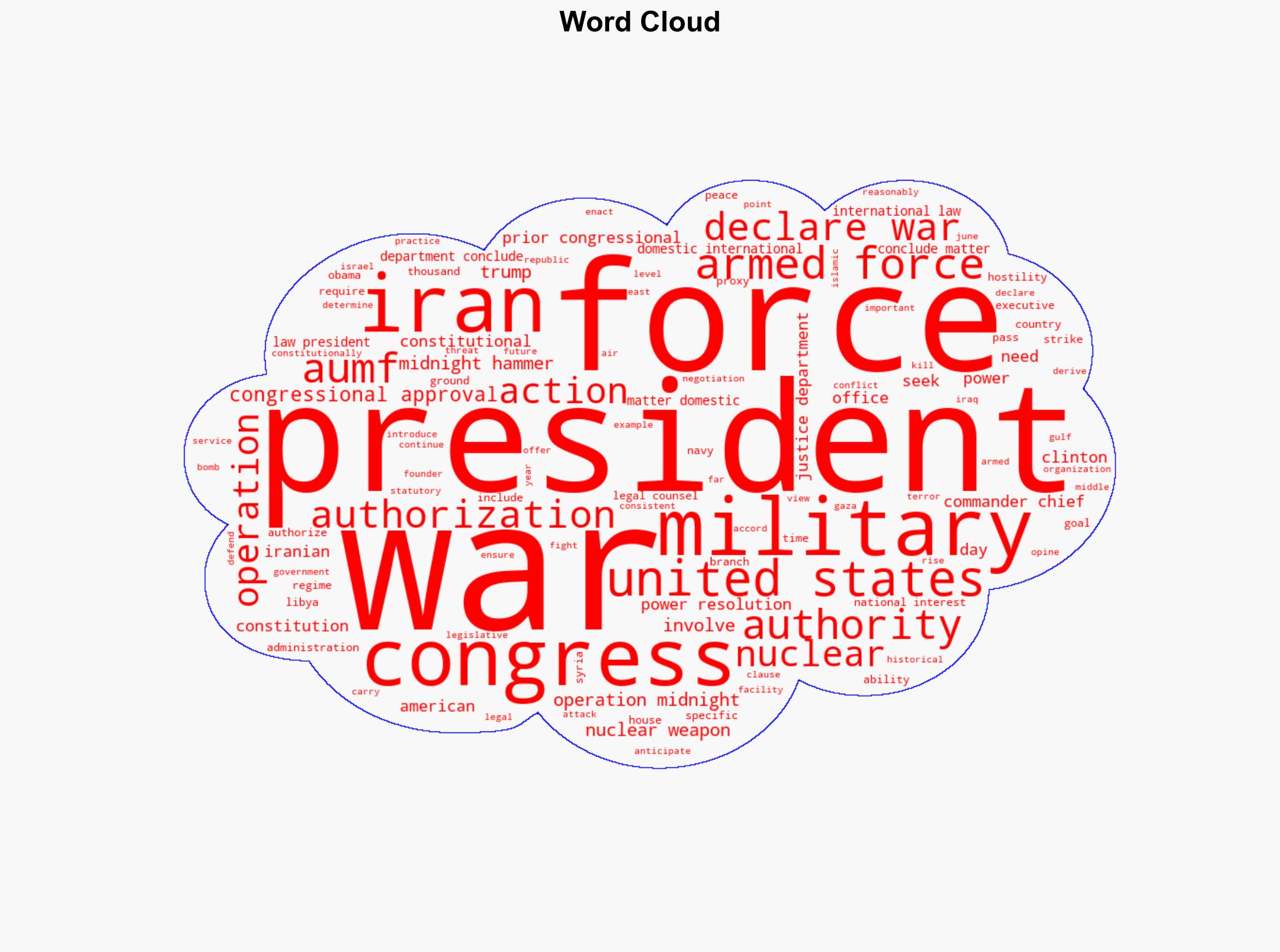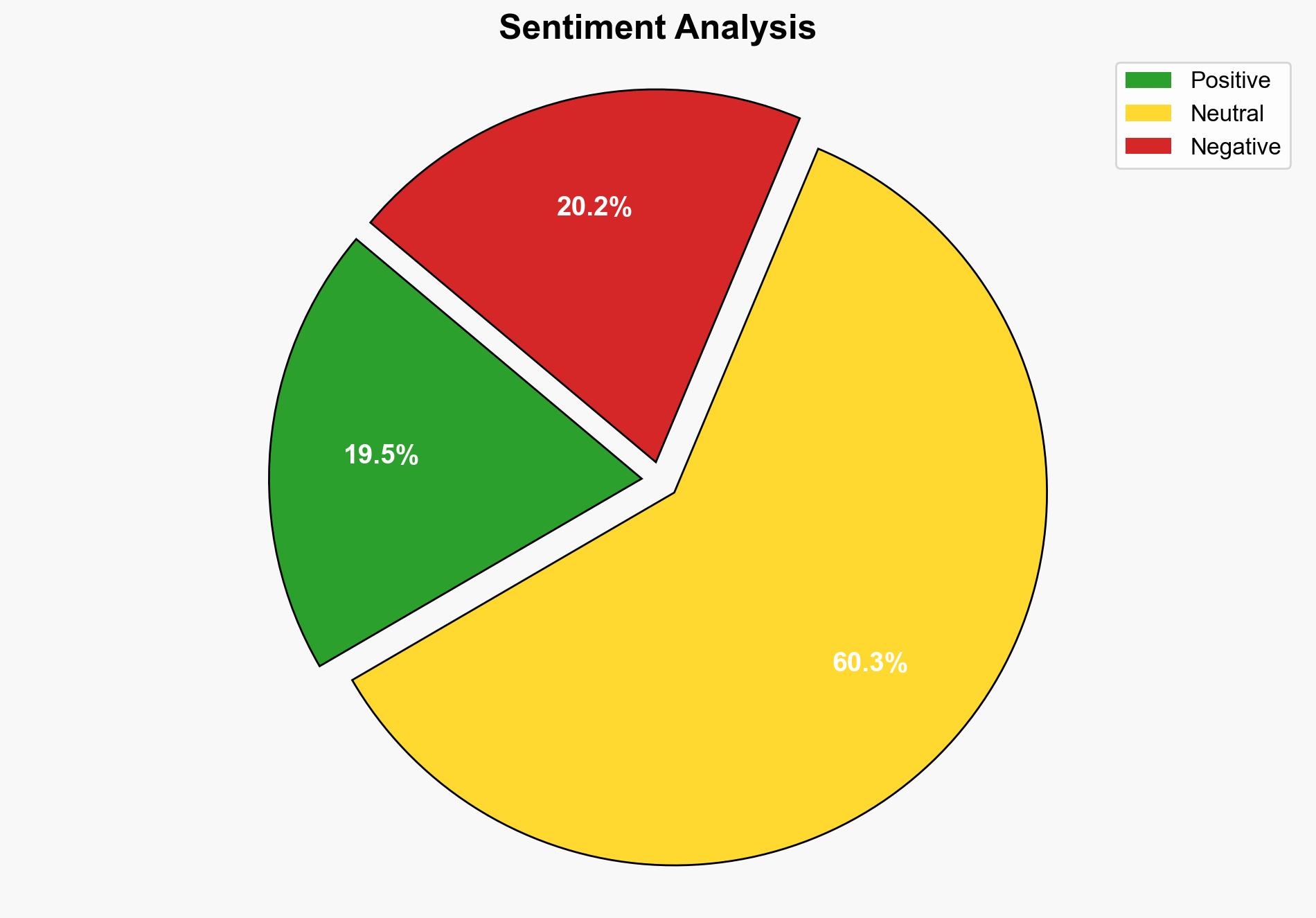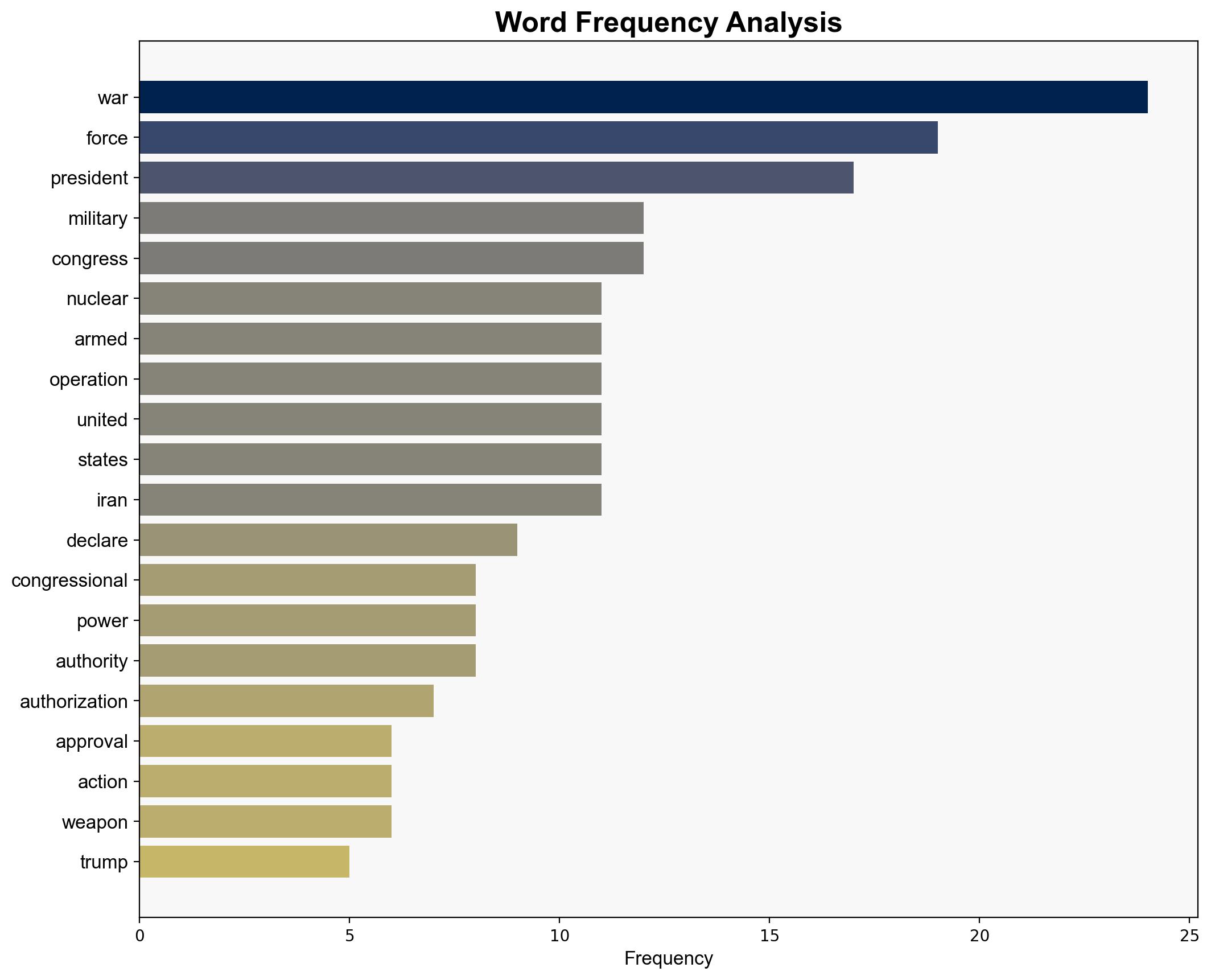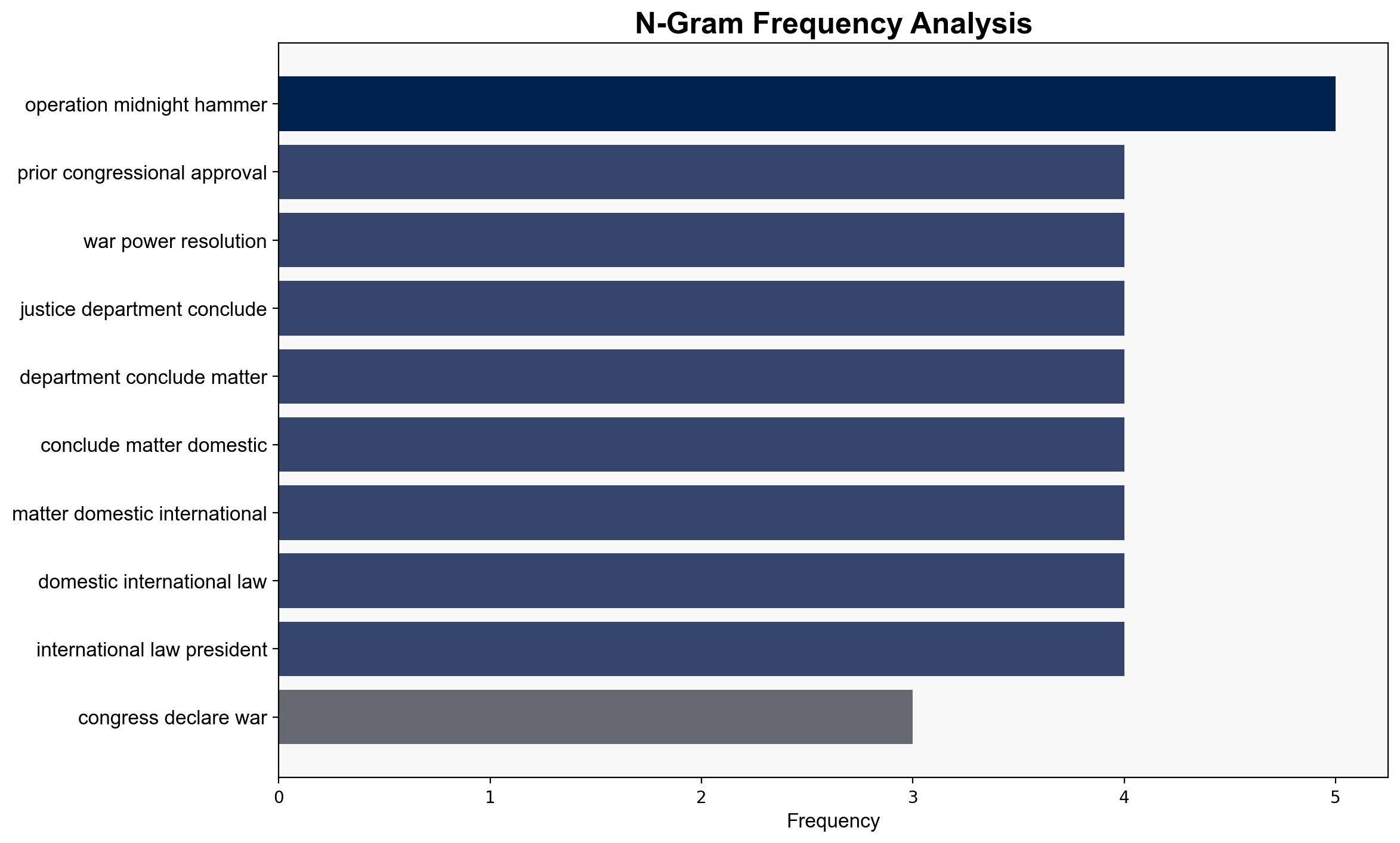Trump Didnt Need Congressional Approval for Operation Midnight Hammer – Daily Signal
Published on: 2025-06-26
Intelligence Report: Trump Didnt Need Congressional Approval for Operation Midnight Hammer – Daily Signal
1. BLUF (Bottom Line Up Front)
The analysis concludes that President Donald Trump acted within his constitutional authority by not seeking congressional approval for Operation Midnight Hammer, a military strike on Iran’s nuclear facility. This action aligns with historical precedents where U.S. presidents have exercised military power without prior congressional consent. The report recommends monitoring potential geopolitical repercussions and preparing for possible retaliatory measures from Iran.
2. Detailed Analysis
The following structured analytic techniques have been applied to ensure methodological consistency:
Causal Layered Analysis (CLA)
Surface events indicate a continuation of executive military actions without congressional approval. Systemic structures reveal a longstanding tension between legislative and executive branches over war powers. Worldviews reflect a belief in the president’s inherent authority to act swiftly in national defense. Myths perpetuate the notion of decisive executive action as a hallmark of effective leadership.
Cross-Impact Simulation
Potential ripple effects include heightened tensions in the Middle East, impacting global oil markets and regional alliances. Neighboring states may reassess their security strategies in response to perceived U.S. unpredictability.
Scenario Generation
– Best Case: Diplomatic channels mitigate escalation, leading to renewed negotiations on nuclear agreements.
– Worst Case: Iran retaliates, triggering broader regional conflict and disrupting global economic stability.
– Most Likely: Increased diplomatic tensions with sporadic military skirmishes, but no full-scale conflict.
Network Influence Mapping
Key actors include U.S. and Iranian government officials, regional allies, and international organizations. Influence dynamics suggest a complex interplay of diplomatic, military, and economic pressures.
3. Implications and Strategic Risks
The operation underscores potential vulnerabilities in U.S. foreign policy decision-making processes, particularly regarding checks and balances. Emerging threats include retaliatory cyberattacks and asymmetric warfare tactics by Iran. Systemic risks involve destabilization of regional alliances and increased anti-U.S. sentiment.
4. Recommendations and Outlook
- Enhance diplomatic engagement with regional allies to mitigate backlash and reinforce strategic partnerships.
- Strengthen cybersecurity measures to protect critical infrastructure from potential retaliatory attacks.
- Prepare contingency plans for various escalation scenarios to ensure rapid response capabilities.
5. Key Individuals and Entities
– Donald Trump
– Iranian government officials
– Regional allies
6. Thematic Tags
national security threats, cybersecurity, counter-terrorism, regional focus





